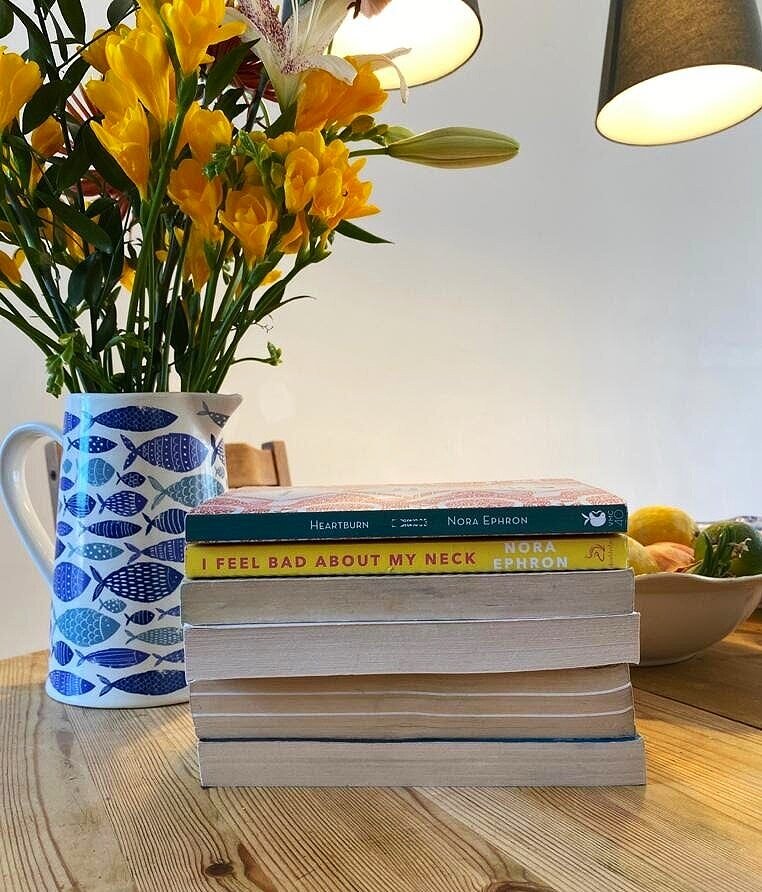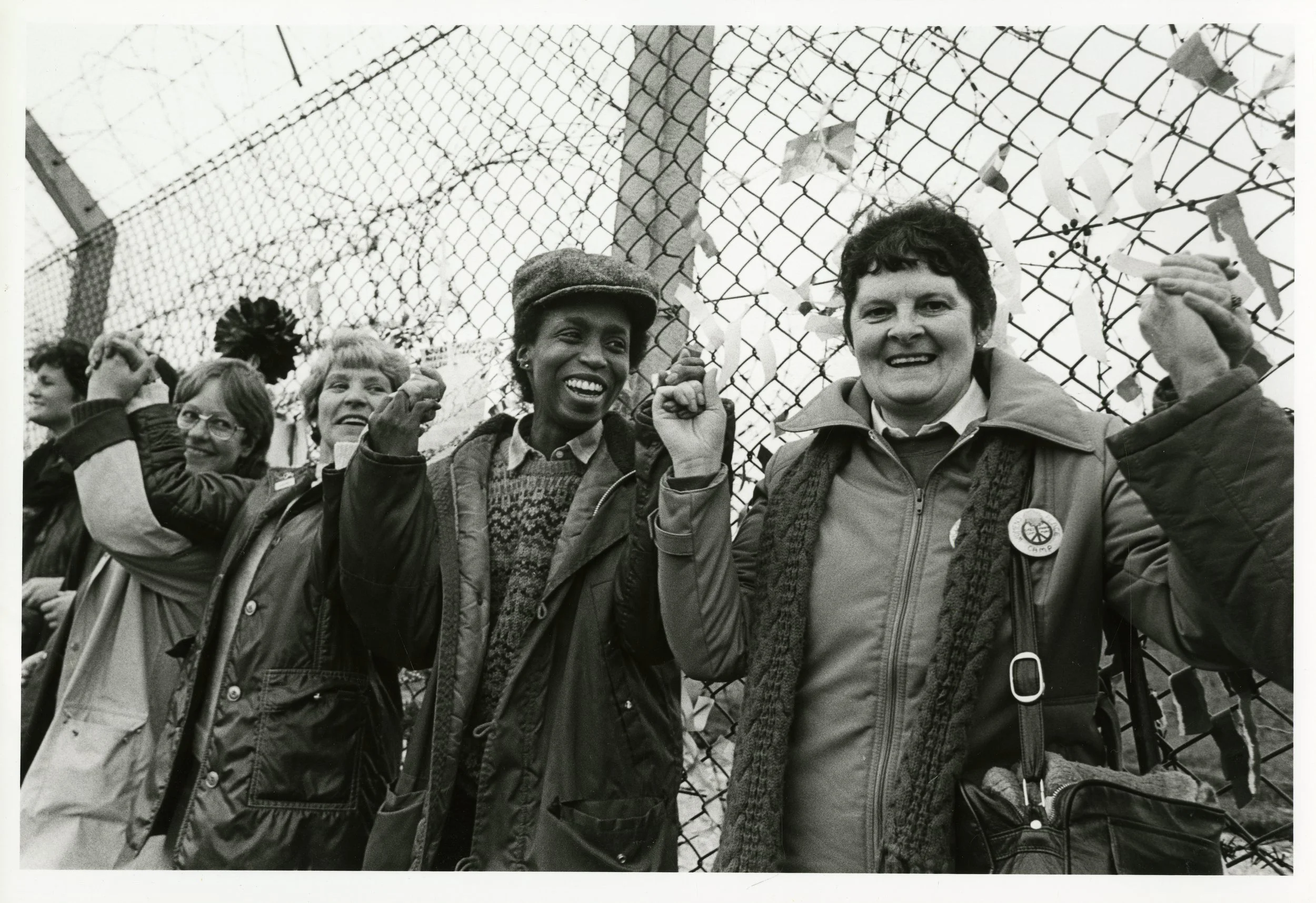Why we all need Nora Ephron in our lockdown lives
‘one of the things I’m proudest of is that I managed to convert an event that seemed to me hideously tragic at the time into a comedy’
For all our quarantine’s sins, it has without a doubt been a great opportunity to sink our teeth into some of the (many) unread books on our shelves. At a time when the news is particularly bleak, if you’re keen for a smart, light-hearted, escapist read - I implore you to pick up anything written by Nora Ephron.
Reading two of Ephron’s books back-to-back during isolation, Heartburn (1983) and I Feel Bad About My Neck: and Other Thoughts on Being a Woman (2006), I became submerged in her razor-sharp wit and astute approach to the world. Whilst the former is a semi-fictional novel drawing on the breakdown of her second marriage, and the latter a collection of reflections on life and womanhood presented as a series of short essays, Ephron’s distinct voice shines through both. As with all her work, these books are laced with life lessons and nuggets of judicious advice, most of which are as relevant during lockdown as ever.
Image: Ellie Weston
Ephron’s books are dowsed in alluring descriptions of good food and centre around an obsession with all things culinary. In I Feel Bad About My Neck, she details her devoted hunt across New York for a cabbage strudel following the closure of a local Hungarian restaurant, whilst the protagonist of Heartburn, Rachel Samstat (based on Ephron herself) claims the thing stopping her husband from leaving is the secret to her vinaigrette. Heartburn is punctuated with indulgent home-cooking recipes as well as the emotions of her divorce mediated and reflected in the food she makes; a peach pie recipe perfected during an idyllic summer on the coast, the sadness when she realises her marriage is over softened with creamy mashed potatoes ‘adding a thin cold slice of butter to every mouthful’.
In our lockdown states, days seem to revolve around what and when to eat, our three meals a day providing some form of structure for many of us. The nostalgic, homely recipe descriptions throughout Heartburn will not only leave you ravenous, conjuring mouth-watering images, but inspire you to take to the stove, even after over 60 days on end of cooking for yourself in lockdown. ‘I don't think any day is worth living without thinking about what you're going to eat next at all times,’ Ephron argues, a mantra that has never been more apt to employ in our quarantine lives. Her food writing is a delicious treat in itself.
One of the most useful lessons I’ve learned from Nora Ephron, a pearl of wisdom which has encouraged some frivolous purchases, has been her ability to justify spending any sum of money on something by breaking it down to the cost of a cappuccino. On its own, a takeaway coffee seems a negligible expense, so simply work out how many coffees-worth the value of the desired item is to validate your purchase. In I Feel Bad About My Neck, Ephron writes about falling deeply and irreversibly in love with a New York apartment with a 24-thousand-dollar charge for the right to move in, aside from the monthly rent. Justifying this she muses: ‘It seemed to me that if I lived in the building for twenty-four years, the fee would amortize out to only a thousand dollars a year, a very small surcharge- only $2.74 dollars a day, which is less than a cup of cappuccino at Starbucks.’ If this doesn’t work, continue to divide by the number of days or hours or minutes until you get a number less than the cost of a cappuccino. This is a fool proof approach and I ensure you it will make you feel better about the spontaneous lockdown online shopping splurges, no matter the expense.
My most important takeaway from reading Ephron’s two books in succession during lockdown, is her attitude and good-humour as she navigates life. Heartburn is notoriously a piece of fiction which is very much rooted in the real life events of the breakdown of her marriage to journalist Carl Bernstein. At seven months pregnant Heartburn’s protagonist, Rachel, realises her husband is in love with another woman, one of her friends to be precise, and details her turbulent coming-to-terms with the end of her marriage. Over the course of several weeks the book depicts Rachel going to therapy, seeking revenge, (spreading a rumour that the other woman has an STI), taking him back for 24 hours, before finally realising there is nothing that can be done to salvage her relationship. The feelings of pain, embarrassment and betrayal are prominent throughout but the very fabric of the book is innately amusing, interspersed with one-liners. In her forward in the later publication, Ephron noted ‘one of the things I’m proudest of is that I managed to convert an event that seemed to me hideously tragic at the time into a comedy’. Yet in my eyes, this skill is far from exclusive to Heartburn, rather evident in all of her work. In I Feel Bad About My Neck she sensitively and humorously explores the topics of financial difficulty, ageing and loss. All the while, reframing her failures to restore her power, ‘if you slip on a banana peel people laugh at you; but when you tell people you slipped on a banana peel, it’s your laugh.’
Taking ownership of the tumults of life and trying to draw on the positives where possible is so typical of Nora Ephron’s writing, and so important for books at the moment, with literature as a medium many of us rely on to distract ourselves from the stresses of the health crisis. She seems to have truly relished her life and her lens is an extremely optimistic one through which to view the world. For this reason, Ephron’s work is the perfect antidote to the anxieties of lock-down, a light relief for us all, and an escapist gem.
To sign off, a few short Ephronisms which I think we can all be set to benefit from; ‘you can’t own too many black turtleneck sweaters’; ‘if the shoe doesn’t fit in the store, it’s never going to fit’; and of course – ‘everything is copy’!
Words by Ellie Weston











